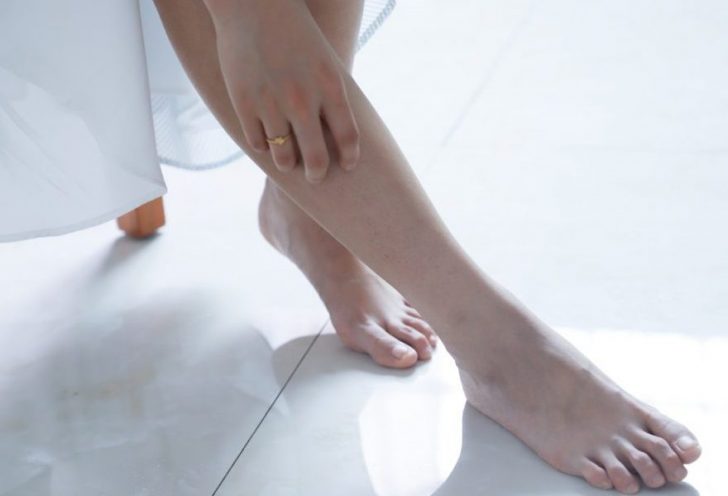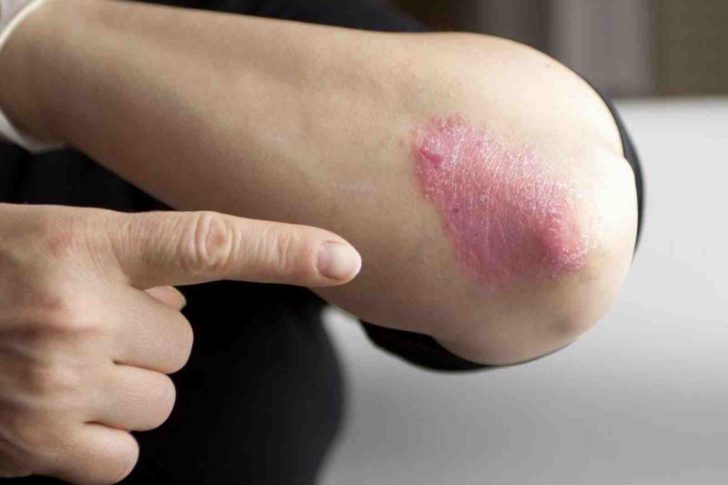Getting an itch on your skin could mean a lot of things – it could be an allergic reaction, a bug bite, or even psoriasis. Unlike other skin conditions, psoriasis comes with distinct features that separate it from any other.
It comes in the form of red scaly patches that itch and are most commonly found around the knees, elbows, scalp, etc. According to the National Psoriasis Foundation, the itch can feel like a bite from a fire-ant. So, let’s talk about this skin disease, and does its unusual appearance pose a threat to people around you?

What is Psoriasis?
The Center for Disease Control and Prevention explains psoriasis as an autoimmune disorder. In this condition, skin cells begin to regenerate rapidly. In a normal human body, cells can take weeks to regrow but for patients suffering from psoriasis, cells multiply daily, resulting in the accumulation of cells, creating a thick and scaly patch.
People who suffer from psoriasis are at higher risk of developing hypertension and diabetes and unfortunately, there is no cure. Psoriasis can easily be determined through its definitive presentation of thick and scaly patches, dry skin that is vulnerable to cuts, tender skin, and changes in the nails.

What Triggers Psoriasis?
Since there is no cure for psoriasis, there is not much that can be done but, if you can identify what triggers your psoriasis, you can stop it from recurring. This may require you to keep a journal and document your activity and what you think are your potential triggers. There are some general triggers that are identified which may include:
- Living dry and cold climates
- Stress
- No longer taking your corticosteroids
- Either smoking or being subjected to smoke.

So, Is It Contagious?
This is the question you were probably most concerned about and the answer to it lies in the definition of this skin disease. It is an auto-immune disorder, which means that it is not contagious at all.
You cannot contract psoriasis if you touch someone’s skin. It is important for people to know this so that they can break this misconception and stigma around people suffering from psoriasis. They already have to deal with constant red patches. The last thing they need is you avoiding them thinking that they are contagious.




